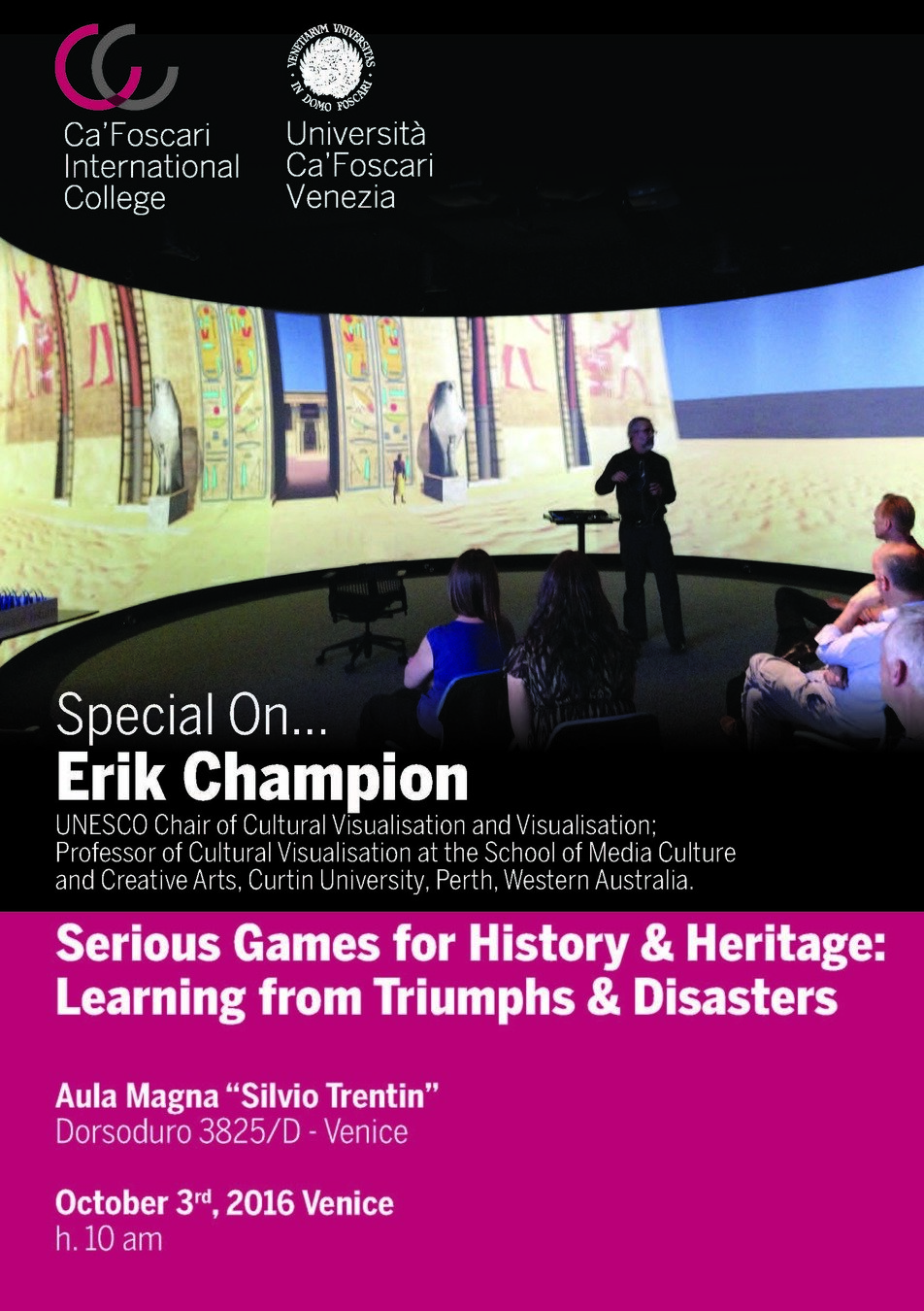BOOK
LAUNCH
15:00 Mon 12.12.2016
@CIC CURTIN B216 Level 2
Professor Erik Champion, MCCA
t: @nzerik
e: erik.champion@curtin.edu.au
w: erikchampion.wordpress.com
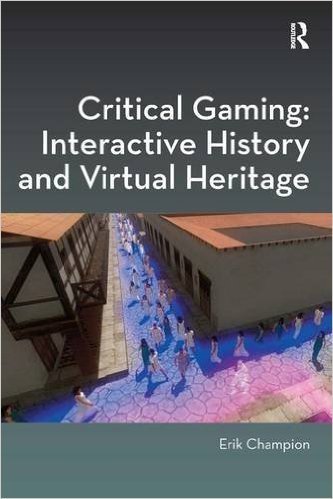
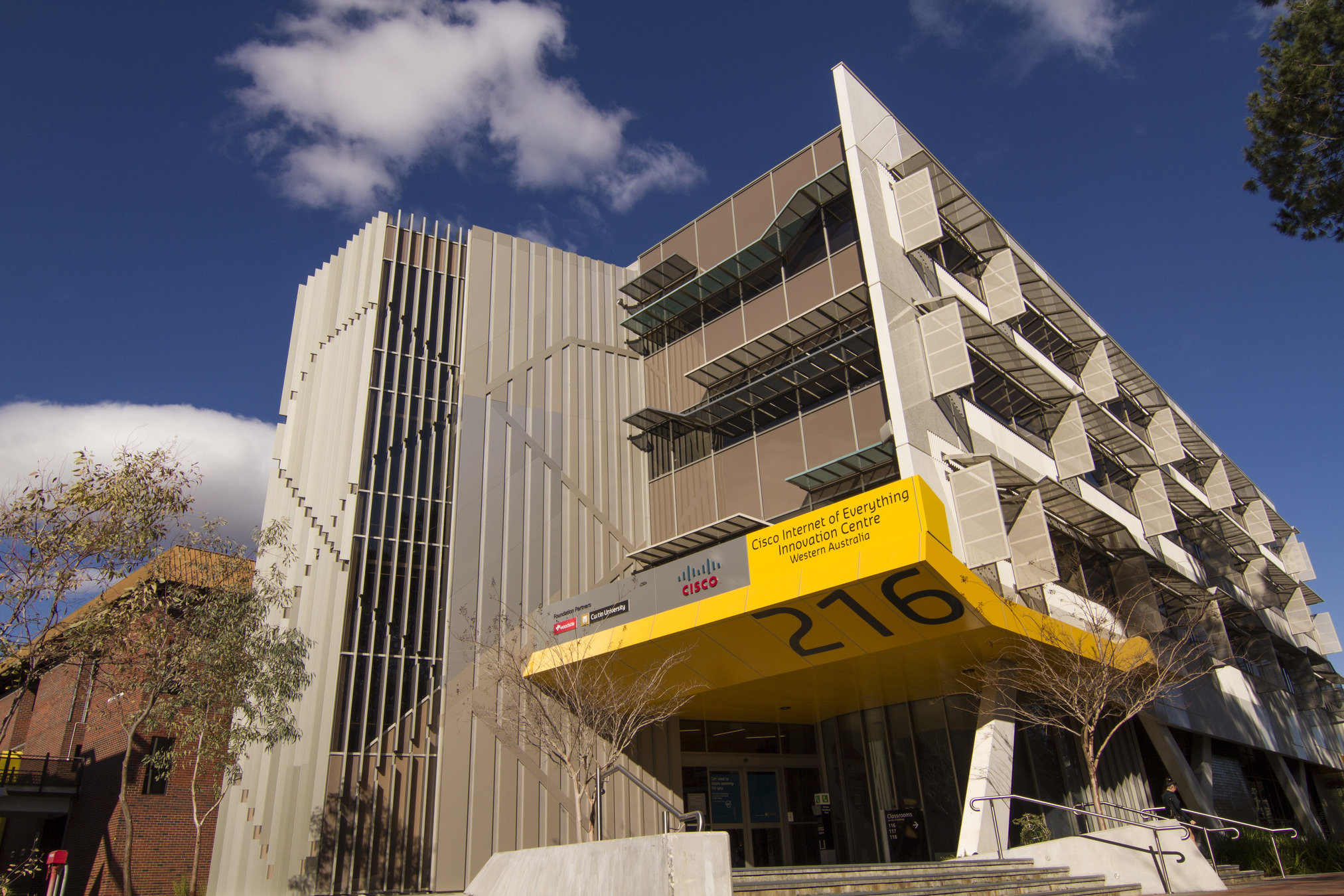
Contents
1 Digital Humanities and the Limits of Text
2 Game-based Learning and the Digital Humanities
4 Game-based History and Historical Simulations
5 Virtual Heritage and Digital Culture
6 Worlds Roles and Rituals
7 Joysticks of death, violence and morality
8 Intelligent agents, drama and cinematic narrative
9 Biofeedback, space and place
10 Applying critical thinking and critical play
Recommendations
'If anyone doubts that games, gamification, and play do not provide a serious and essential path to creativity and knowledge-production about the past, then Erik Champion's book will surely change their minds. The book is a must for teachers, historians, archaeologists, and museum and cultural heritage professionals interested in critically using games and virtual reality as tools for teaching and research.' Ruth Tringham, University of California, Berkeley, USA
'Champion's newest work represents a treasure trove of ideas for both scholars and practitioners in the field of digital heritage. Digital media designers will find a plethora of design ideas while researchers will encounter as many useful evaluation suggestions, both with the goal of creating virtual environments that convey a sense of cultural presence and facilitate cultural learning.' Natalie Underberg-Goode, University of Central Florida, USA
'By emphasizing the new cultural role of serious games, game-based learning, and virtual heritage in making scholarly arguments, this book demonstrates the relevance of visualization, interaction and game design in a contemporary humanities discourse. It will be of great use to scholars and educators who want to include new digital methods in their research and courses while it will provide indispensable digital literacy, references, and case studies to 21st century students in humanities and heritage-related fields.' Nicola Lercari, University of California, Merced, USA
...proposes a number of intriguing and provocative suggestions, relating to both our theoretical understanding of games and in giving more empirical recommendations for the future of heritage- or simulation-focused gaming experiences, and lays the groundwork for potentially fascinating developments in coming decades." - Mark R. Johnson, University of York
Led to..
https://www.rockpapershotgun.com/2016/07/22/future-of-procedural-generation-1/
In Critical Gaming: Interactive History and Virtual Heritage, a 2015 scholarly work by Erik Champion, a very intriguing point is made about the books in the Elder Scrolls series. In considering the interactive options given to the player, and the detail of the “lore” books the player can encounter, Champion argues that the books in the Elder Scrolls series describe a far richer world than the player is actually able to engage with...
on blogs..
I’ve been reading Eric Champion’s Critical Gaming: Interactive history and virtual heritage. Eric asked his publishers to send me a review copy, but none was forthcoming, and I can’t wait for the library to get hold of a copy – I think I was to quote it in a paper I’m proposing – so I splashed out on the Kindle edition. I think of it as a late birthday present to myself, and I’m not disappointed..Also in all though, I can already see that the book will be an enjoyable and rewarding read." - Matthew Tyler-Jones, National Heritage Trust (UK/ University of Southampton)
https://memetechnology.org/category/games/skyrim/
on research blogs..
Erik Champion, author of Critical Gaming: Interactive History and Virtual Heritage gave the first guest lecture for the 3DH project. Erik was originally an architect who now works in interactive history and digital culture. He has led a number of projects that adapt game engines for cultural heritage. He gave us a great tour of various 3D examples to encourage us to think of games and virtual spaces as visualization.
Professor Geoffrey Rockwell, 3DH, http://threedh.net/erik-champion-visualization-and-games/
on websites..
Erik Champion’s WordPress site https://erikchampion.wordpress.com/ displays the form of a true digital humanist. Champion is the current professor of Cultural Visualization at Curtin University in Perth, Australia. His forthcoming work, Critical Gaming: Interactive History And Virtual Heritage focuses on game play and the digital humanities, as well as the intriguing idea of ‘critical play.’ ...Champion is major player in the European digital humanities field with an impressive list of work in the data visulization and digital culture areas. The work in screen warping and biofeedback are worth the visit.
Inside keynotes..
In academic papers
Adam Chapman, Anna Foka & Jonathan Westin (2016): Introduction: what is historical game studies?, Rethinking History:The Journal of Theory and Practice, DOI:
10.1080/13642529.2016.1256638
..historical games studies can be defined as ‘the study of those games that in some way represent the past or relate to dis-courses about it’ (Chapman 2016, 16) ... other research
concerns are only hinted at by this definition .. the use of games in historical conflict simulation (Sabin 2007, 2012), history education (Kee 2014; McCall 2011) and heritage (Champion 2015; Mortara et al. 2014 ). As such, the field might demand an expanded definition going forwards.

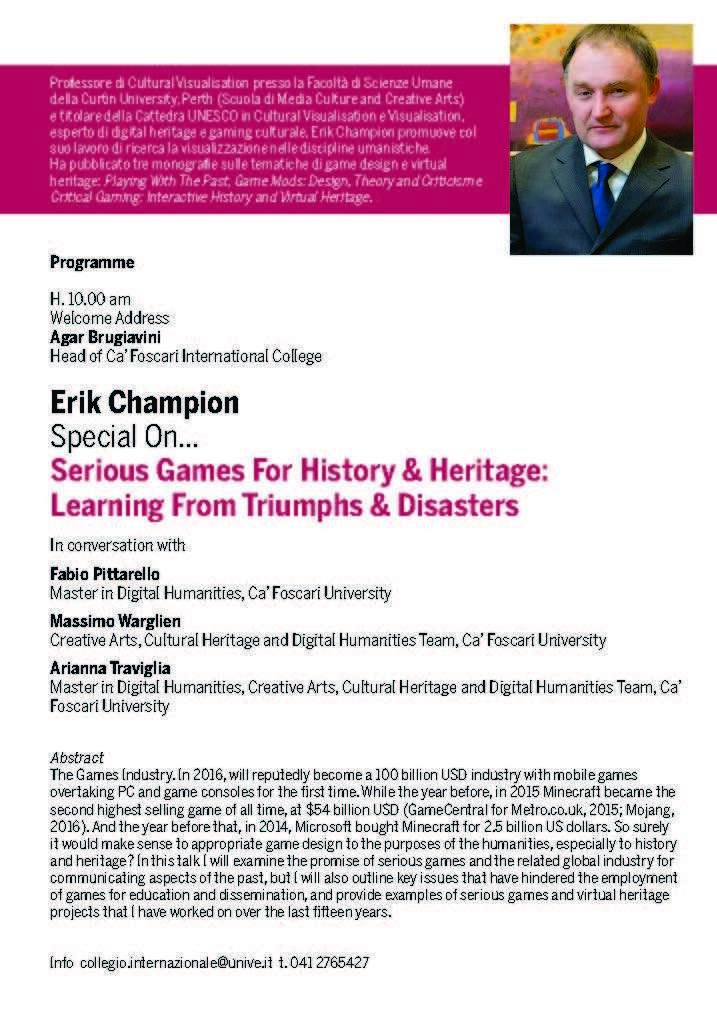
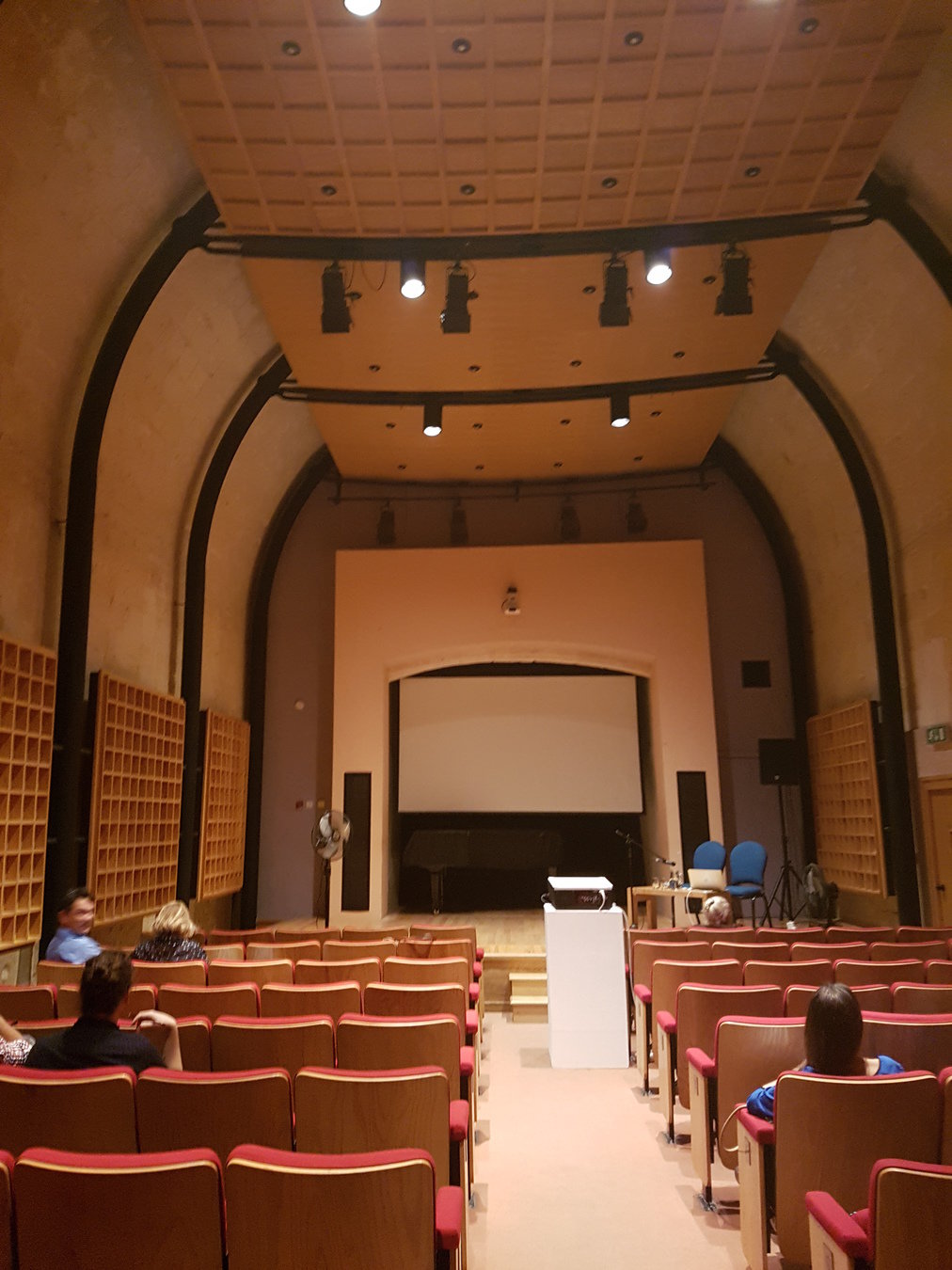
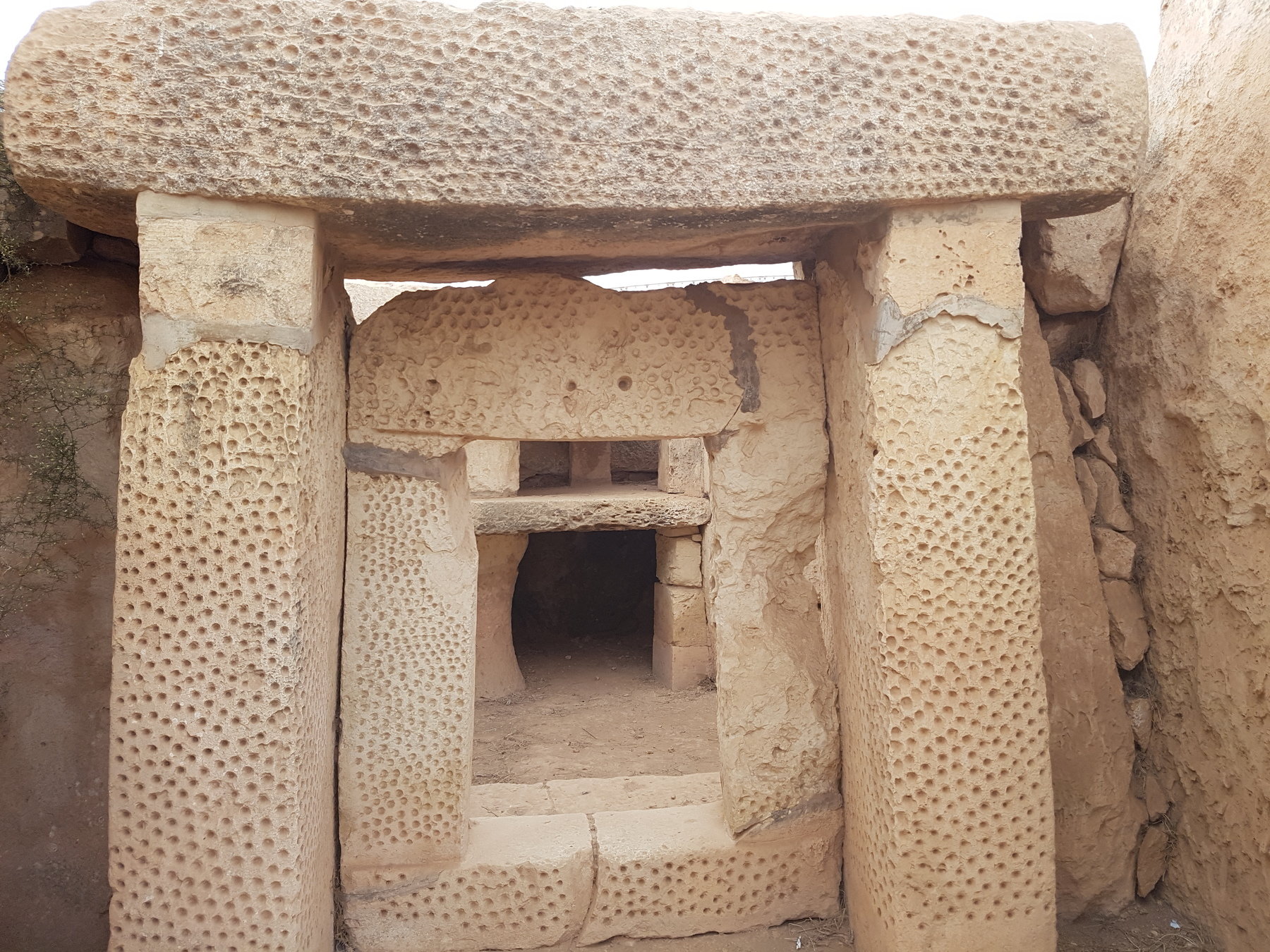
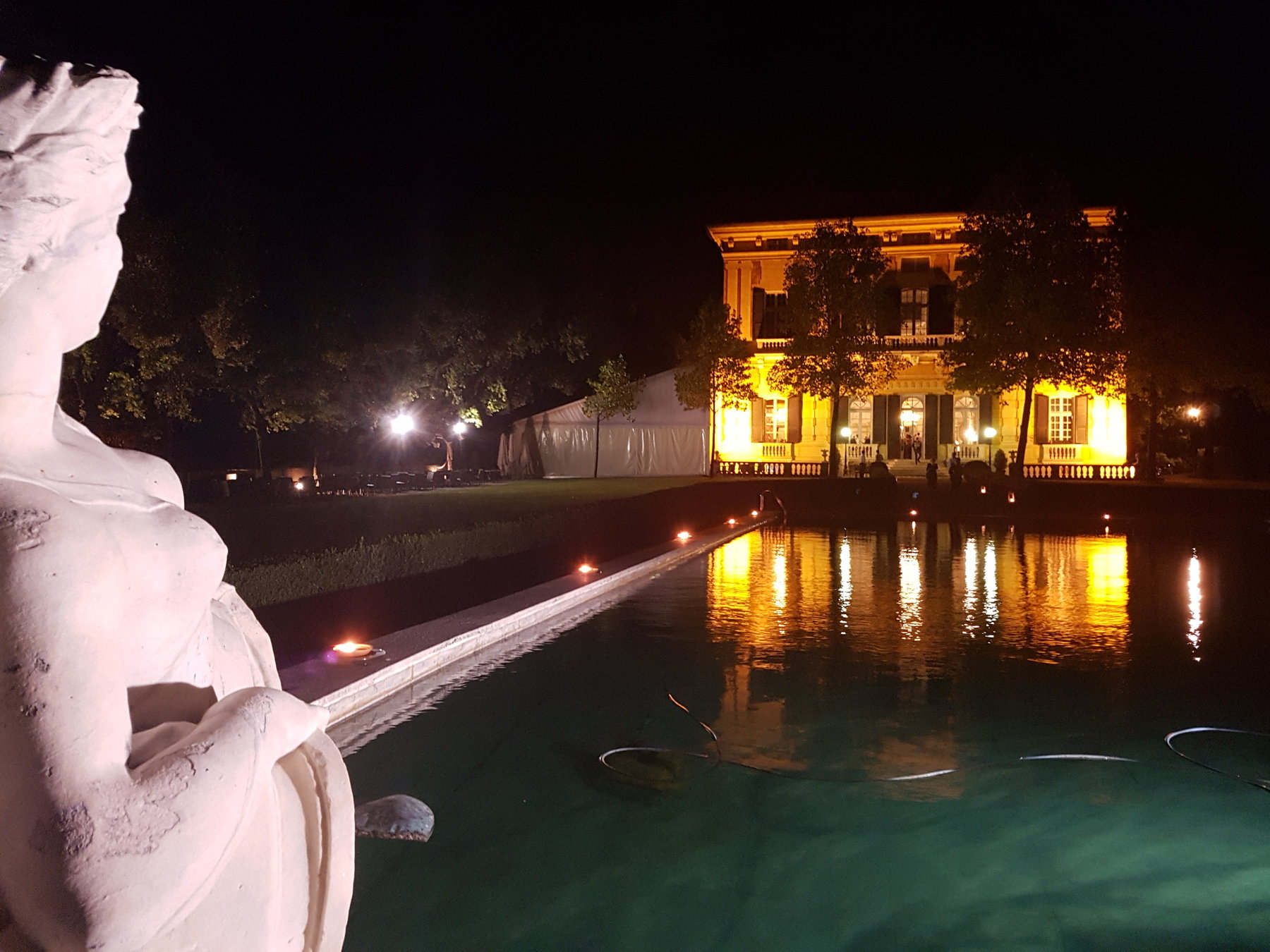
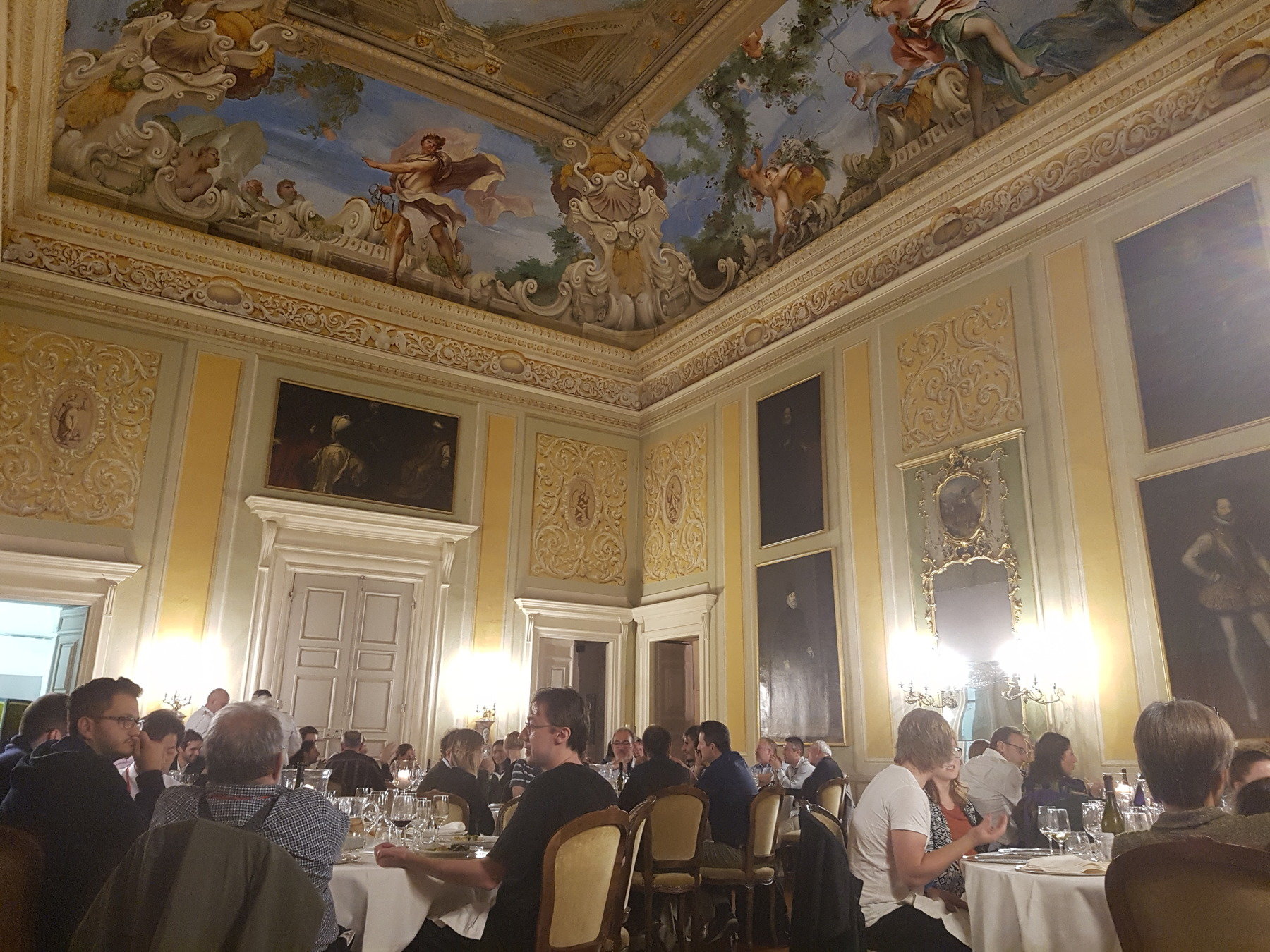
Oh the places you will go..
Books in press & pending
- Benardou, A., Champion, E, Dallas, C., and Hughes, L., (Eds.). (2017: In press). Cultural Heritage Digital Tools and Infrastructures. Routledge, UK. https://www.routledge.com/products/9781472447128. ISBN 9781472447128.
- Champion, E. (2017: accepted). DESIGNING THE ‘PLACE’ OF VIRTUAL SPACE. Indiana University Press, Spatial Humanities series.
- Champion, E. (Ed.). (2017: contracted). Organic Design in Twentieth-Century Nordic Architecture. Routledge.
- Champion, E. (Ed.). (2017: pending). Phenomenology, Place and Virtual Place. Routledge.
Chapters etc in press..
-
Champion, E. (2017: in press). “The Role of 3D Models in Virtual Heritage Infrastructures” in Benardou, A., Champion, E, Dallas, C., and Hughes, L. (Eds.). (2017). Cultural Heritage Digital Tools and Infrastructures. Routledge, UK. https://www.routledge.com/products/9781472447128. ISBN 9781472447128.
-
Champion, E. (2017: pending). 3D models and cultural heritage. Open access book chapter with Herder-Institut für historische Ostmitteleuropaforschung. Chapter due 13 January 2017.\
-
Champion, E. (2017: accepted). “A Schematic Division of Game-Learning Strategies Relevant to Digital Archaeology and Digital Cultural Heritage” in Jimenez, D. (Eds.). (2017). Title to be confirmed, redTDPC, Mexico.
-
Champion, E. (2017: accepted). Single White Looter: Have Whip, Will Travel. For an edited volume by Value, Leiden University, The Interactive Past. Chapter due 15.12.2016.
-
Miller, K., Champion, E., Clarke, M., Summers, L., Lumayr, A. (2017, accepted). “Community‐Building with a Makerspace in an Academic Library” for Robin Kear and Kate Joranson, (Ed). Digital Humanities, Libraries, and Partnerships. Chandos Press, Elsevier.
Articles etc
- Champion, E. (2017: in press). Bringing Your A-Game to Digital Archaeology: Issues with Serious Games and Virtual Heritage and What We Can Do About It. SAA Archaeological Record: Forum on Digital Games & Archaeology (special issue). Expected January issue.
- Champion, E. (2016: in press). Ludic Challenges for New Heritage and Cultural Tourism. International Journal of Mediterranean Archaeology & Archaeometry, (special issue, selection of VAMCT2015 conference papers). URL: www.maajournal.com Vol.16, No.5.
- Champion, E. (2017: accepted). “Mechanics, Mods and Mashups: Games of the Past for the Future Designed by Archaeologists”. Other session, Computer Applications and Quantitive Methods in Archaeology (CAA), Atlanta, Georgia, USA, 14-16 March, 2017. Also paper on PublicVR. URL: http://caaconference.org/
- Champion, E. (2016). Heritage and Social Media: Understanding heritage in a participatory culture [Book Review]. Heritage & Society, 8(2). In press.
CAA2017 track/paper
March 14-16, 2017: ATLANTA
Mechanics, Mods and Mashups: Games of the Past for the Future Designed by Archaeologists
- “I Don’t Want to Set the World on Fire”: Ruin Interactions and Attitudes in Fallout-Emily Jean Booker
- Sailing with the Gods: Argonauts & Samothracians in an Ancient Sea-Robert C Bryant, Sandra Blakely, Joanna Mundy, Cole Furrh: https://scholarblogs.emory.edu/samothraciannetworks/the-game/play-the-game/
- How Waterloo was Won-Stuart Eve
- Blur the lines – Games as tools for archaeological research-Lennart Linde
- Arpilleras and Ayni: Roleplaying Reciprocity-Natalie Underberg-Goode and Peter Smith
- Designing and Using Game Environments as Historical Learning Contexts-Juan Francisco Hiriart
The virtual presentation of landscapes in games, thanks to the exponential increase of representational power of digital technologies, has been progressively challenging the capacity of gaming audiences to distinguish virtual environments from real-world referents. This spectacular growth, however, has not been mirrored by a comparable progress in the simulation of the natural and social processes from real environments. Although highly realistic, game landscapes in most commercial titles still remain as inert theatrical scenery, devoid of any capacity to reflect the effects of human life agency and the inextricable nature of social and natural processes.
In this presentation, I would like to demonstrate a historical game prototype that I have been developing as part of a PhD research, with the purpose of investigating possible design solutions to the problem of creating game environments capable of transmitting the inherent complexity of historical landscapes. The game reconstructs Early Medieval Britain, focusing on the micro-histories of everyday life instead of more stereotypical forms of gameplay centred on the simulation of violent conflicts. Currently in its final version, the game has been iteratively produced in cycles of development and play-testing sessions with the participation of archaeologists, historians, and educators who have given valuable feedback about its design, direction, and potential use.
Share this:
Related
CAA 2017 Other session "Mechanics, Mods and Mashups" ACCEPTED!In "Announcements"
CAA2017 Session Accepted!In "Announcements"
Current ProjectsIn "Announcements"
December 3, 2016 EMC3D and game editors, archaeology, Conference, digital heritage, heritage, Presentation, virtual heritageAtlanta, CAA2017
Leave a Reply
Post navigation
Previous Post report on trip to Italy, Malta (abridged)
Search for:
3D and game editors Academic Announcements archaeology Architecture Biofeedback Book Conference design digital heritage Digital Humanities game heritage Journal Presentation publication respositories virtual heritage Virtual Reality visualisation
statcounter
#nzerik TwitterFeed
-
How a brain invents peripheral vision nzh.tw/11764138 via @nzherald 1 hour ago
-
RT @UAlberta: Video game course adapted for high-schoolers takes critical look at gaming culture. ow.ly/tzrU306qQa1 https://t.co/nRdi… 9 hours ago
-
RT @dhumanities_rr: Critical Gaming: Interactive History and Virtual Heritage rightrelevance.com/tw/dhumanities… 10 hours ago
-
RT @jaytiesse: The origin of just about everything, visualized wired.com/2016/12/origin… via @WIRED 11 hours ago
-
I am so modding this for academics! oculus.com/blog/oculus-to… "Dead and Buried lets you ..go head-to-head as either a lawman or outlaw." 13 hours ago
Your next book
Routledge Digital Research in the Arts & Humanities series
Spatial Humanities series-Indiana University Press
ETC Press (CMU)
Berghahn Exploring Heritage book series
Digital Culture Books-University of Michigan Press
..& next article..
Internet archaeology-U. York
Journal of Cultural Heritage-Elsevier
Digital Applications in Archaeology and Cultural Heritage-Elsevier
Journal of Computing & Cultural Heritage (ACM)
Journal of Interactive Humanities-Rochester (RIT)
Digital Scholarship in the Humanities (Oxford)
Int. Journal of Heritage Studies (Taylor & Francis)
Support 2017 conferences in OZ!
www2017.com.au 3-7 April 2017
web3d2017.web3d.org/ 5-7 June 17
digra2017.com 3-6 July 2017
Heritage Interfaces 2017?
PhD student:
Beata Dawson
PhD student
Rusaila Dawson
Sebastian Robbins; Sean Anderson; Neil Dempsey; Campbell Pedersen
Samuel Warnock;
Kinect-3D pointing system
Samuel Warnock
Kinect-3D mirror-pointing
A. Prof Sullivan, Conal Tuohy, Michael Wiebrands, Dominic Manley, Dr Karen Miller, Dr Stuart Bender, A. Prof Artur Lugmayr, Dr Pauline Joseph, Dr Lise Summers, Janice Chan, Marie Clarke
Dr Karen Miller, Dr Lise Summers, Janice Chan, Marie Clarke, A. Prof Michele Willson, MCCA, Rebecca Lange, data mentors, Scitech & judges!
VR bought
- BOBOVR Z4 VR HMD
- Meta2 see through HMD
- Vive Kit - HMD + controllers
- Oculus Rift
- PS4 VR+ Pro+ Camera+ Move
- PS3 PlayStation Dual Shock
- SteelSeries Stratus XL
- Skanect & Asus Xtion Pro Scan
- EMOTIV Insight Biofeedback
- BITalino - BioMedical Devkit


